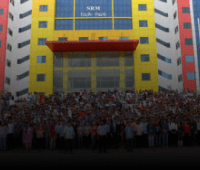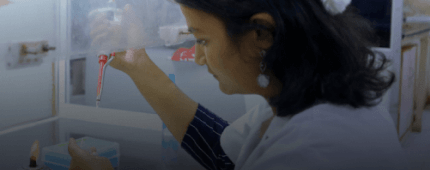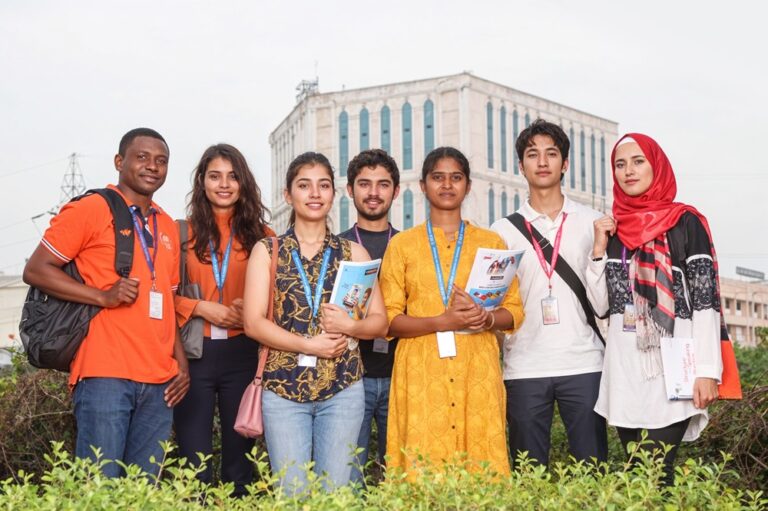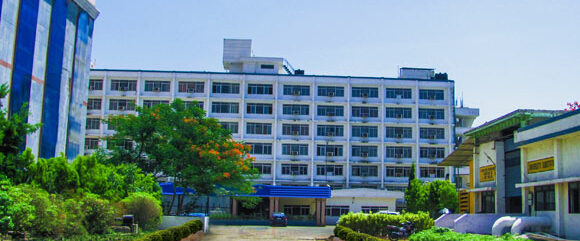HIGHLIGHTS OF THE DEPARTMENT
LABORATORY & INSTRUMENTATION
Pharmaceutics is the science of dosage form design, focusing on the formulation, preparation, and evaluation of medications for optimal therapeutic effect. A pharmaceutics laboratory, often referred to as a “Ceutics lab,” provides students and researchers with the hands-on experience necessary to understand and develop pharmaceutical products. Below is a general content outline for a pharmaceutics laboratory course.
Key Areas of Study
Introduction to Pharmaceutical Compounding
- Understanding the role of compounding in pharmacy.
- Different types of dosage forms (solid, liquid, semi-solid, gaseous)
Laboratory Safety and Protocols
- General lab safety rules and emergency procedures.
- Proper use of personal protective equipment (PPE).
- Safe handling and disposal of chemicals and biological materials.
Equipment and Techniques
- Familiarization with basic laboratory equipment: balances, mixers, pH meters, pipettes, and more.
- Calibration and maintenance of laboratory instruments.
- Sterilization techniques: autoclaving, dry heat, filtration.
Solid Dosage Forms
- Powder blending: techniques for ensuring uniformity.
- Granulation methods: wet and dry granulation.
- Tablet formulation and compression.
- Capsule filling: manual and semi-automatic methods.
Liquid Dosage Forms
- Preparation of solutions, syrups, and elixirs.
- Formulation of suspensions and emulsions.
- Methods to enhance solubility and stability.
Semi-Solid Dosage Forms
- Compounding of ointments, creams, gels, and pastes.
- Incorporation techniques: levigation and fusion method.
- Evaluation of viscosity and spreadability.
Sterile Dosage Forms
- Aseptic techniques and working in laminar flow hoods.
- Preparation of parenteral products: small-volume and large-volume parenterals.
- Sterility testing and pyrogen testing.
Advanced Drug Delivery Systems
- Design and evaluation of controlled release systems.
- Transdermal drug delivery: Patch formulation and evaluation.
- Nanotechnology in drug delivery.
Analytical Techniques
Particle size analysis, dissolution testing, disintegration apparatus, hardness tester, thickness measurable instrument, friability etc.,
Quality Control and Assurance
- Good Manufacturing Practices (GMP) and regulatory guidelines.
- Quality control tests for various dosage forms: hardness, friability, disintegration, dissolution.
- Stability testing: accelerated and real-time studies.
Outcome
- Demonstrate proficiency in pharmaceutical compounding techniques.
- Understand and apply the principles of dosage form design and development.
- Conduct quality control tests and ensure compliance with regulatory standards.
- Address formulation challenges and develop patient-specific solutions Present and defend their formulation strategies and results effectively
Career Pathway For M.pharm (Pharmaceutics)
Expanding Horizons with an M.Pharm in Pharmaceutics
Graduates with an M.Pharm in Pharmaceutics have a wealth of opportunities in both the private and public sectors in India. This advanced degree opens doors to employment in academic institutions, businesses, and the industrial sector. Postgraduates can choose from a diverse range of professions such as professor, formulation scientist, regulatory affairs specialist, and many more.
Career Growth and Specialization
The M.Pharm in Pharmaceutics is a two-year postgraduate degree program designed to enhance an individual’s career prospects through comprehensive study and practical training. This course not only refines a person’s character but also equips them for various professional roles. As experience grows, so does the scope of opportunities, leading to better job prospects and higher pay. The demand for M.Pharm graduates in India is continuously rising, reflecting the course’s value.
Global Opportunities
The professional options for M.Pharm in Pharmaceutics graduates are not limited to India. There is a significant demand for these professionals abroad, with numerous job opportunities available globally. Graduates with excellent academic records or those employed in top-tier industries often receive international transfer offers. Additionally, pursuing further postgraduate studies or relevant courses can significantly enhance one’s chances of securing employment overseas, especially in regions where pharmaceutical research is highly valued.
Jobs for M.Pharm in Pharmaceutics Graduates
- Formulation Scientist
- Research and Development (R&D) Scientist
- Quality Control (QC) Analyst
- Quality Assurance (QA) Manager
- Regulatory Affairs Specialist
- Production Manager
- Lecturer/Professor
- Research Scientist
- Lecturer/Professor
- Research Scientist
- Biotechnologist
- Contract Research Organization (CRO) Scientist
- Pharmaceutical Consultant
- Start-Up Founder
- Patent Examiner
- Intellectual Property Consultant
Research Projects
STUDENT PROJECTS
All students are required to complete the project as per the curriculum. Every year, in the PG and Ph.D. programs, a minimum of five students learn about sustain release based formulations and perform projects in the field of Pharmaceutics. Our department, with more than 15 publications, represents the Sustainable Development Goals (SDGs).
Publications on SDGs
- Journal of Controlled Release (IF 10.8)
- International Journal of Pharmaceutics (IF 5.8)
- Drug Delivery and Translational Research (IF 5.4)
- European Journal of Pharmaceutical Sciences (IF 4.6)
- Journal of Pharmaceutical Sciences (IF 3.8)















